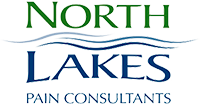Understanding the Benefits of Therapeutic Nerve Blocks
Understanding the Benefits of Therapeutic Nerve Blocks
Understanding the Benefits of Therapeutic Nerve Blocks
A therapeutic nerve block is a medical procedure that involves the injection of a local anesthetic or medication into specific nerves to relieve pain or treat certain medical conditions. It is a minimally invasive procedure that can be performed in an outpatient setting, offering a non-surgical alternative for pain management. The goal of a therapeutic nerve block is to interrupt the transmission of pain signals from the nerves to the brain, providing immediate relief and improving patients’ quality of life.
How Does a Therapeutic Nerve Block Work?
Therapeutic nerve blocks work by targeting the nerves responsible for transmitting pain signals. When a nerve is blocked with an anesthetic or medication, it prevents the pain signals from reaching the brain, effectively numbing the area and providing pain relief. The specific nerves targeted for the block depend on the underlying condition being treated. For example, in a nerve block for chronic back pain, the physician may target the nerves in the spinal column that are responsible for transmitting pain signals from the back to the brain.
Common Conditions Treated
Therapeutic nerve blocks can be used to treat a variety of medical conditions, ranging from chronic pain conditions to certain neurological disorders. Some common conditions that may benefit from therapeutic nerve blocks include:
- Chronic back pain: Nerve blocks can target the nerves in the spinal column to provide relief from chronic back pain, including conditions like sciatica or herniated discs.
- Migraines: For individuals suffering from debilitating migraines, nerve blocks can provide significant relief by targeting the nerves in the head and neck region.
- Cancer pain: Therapeutic nerve blocks can be used as part of a comprehensive pain management plan for individuals with cancer, helping to alleviate pain caused by tumors or cancer treatments.
- Complex regional pain syndrome (CRPS): CRPS is a chronic pain condition that often affects the limbs. Nerve blocks can help manage the symptoms and provide relief for individuals with CRPS.
Benefits of a Therapeutic Nerve Block
There are several benefits to undergoing a therapeutic nerve block for pain management or treatment of medical conditions. Some of the key benefits include:
- Non-surgical approach: Unlike traditional surgeries, therapeutic nerve blocks are minimally invasive procedures that can be performed in an outpatient setting. This means less risk, shorter recovery times, and reduced costs compared to surgical interventions.
- Targeted pain relief: By directly targeting the nerves responsible for transmitting pain signals, therapeutic nerve blocks provide precise and targeted pain relief. This can result in immediate relief and improved quality of life for individuals suffering from chronic pain.
- Reduced reliance on medication: Therapeutic nerve blocks can help reduce the need for long-term use of pain medications, which often come with side effects and the risk of dependency. By providing effective pain relief, nerve blocks offer an alternative to ongoing medication management.
- Improved functionality: Chronic pain can significantly impact an individual’s daily activities and overall functionality. Therapeutic nerve blocks can help restore functionality by reducing pain and allowing individuals to engage in activities they may have previously avoided due to pain.
What to Expect During a Procedure
Before undergoing a therapeutic nerve block procedure, patients will typically have a consultation with their healthcare provider to discuss their symptoms, medical history, and any potential risks or benefits of the procedure. The actual procedure itself involves the following steps:
- Preparation: The patient will be positioned comfortably, and the skin over the injection site will be cleaned and sterilized.
- Injection: The healthcare provider will use a thin needle to inject the anesthetic or medication into the targeted nerves. They may use imaging techniques, such as fluoroscopy or ultrasound, to ensure accurate needle placement.
- Monitoring: After the injection, the patient will be monitored for a short period to ensure there are no immediate complications or adverse reactions.
Recovery and Aftercare for Therapeutic Nerve Blocks
After a therapeutic nerve block procedure, patients may experience some temporary numbness or weakness in the area where the injection was administered. This is normal and should subside within a few hours. It is important to follow the healthcare provider’s instructions for post-procedure care, which may include:
- Rest: It is advisable to take it easy for the remainder of the day following the procedure. Avoid strenuous activities and give your body time to recover.
- Pain management: While therapeutic nerve blocks are intended to provide pain relief, it is possible to experience some discomfort or soreness at the injection site. Over-the-counter pain medications or ice packs can help alleviate these symptoms.
- Follow-up appointments: Depending on the underlying condition being treated, patients may need to schedule follow-up appointments with their healthcare provider to monitor their progress and determine if additional nerve blocks are necessary.
Conclusion
Therapeutic nerve blocks offer a valuable option for individuals seeking pain relief or treatment for specific medical conditions. By targeting the nerves responsible for transmitting pain signals, these minimally invasive procedures can provide immediate relief, improve functionality, and reduce reliance on pain medications. Whether it’s chronic back pain, migraines, or other conditions, therapeutic nerve blocks can be a beneficial tool in managing and alleviating pain. If you are suffering from chronic pain, consult with a healthcare provider to determine if therapeutic nerve block is a suitable treatment option for you.
If you are seeking relief from chronic pain or a specific medical condition, consider discussing therapeutic nerve blocks with your healthcare provider at North Lakes Pain. They can provide you with more information about the procedure and whether it may be a suitable option for you. Don’t let pain control your life—explore the benefits of therapeutic nerve blocks today.
